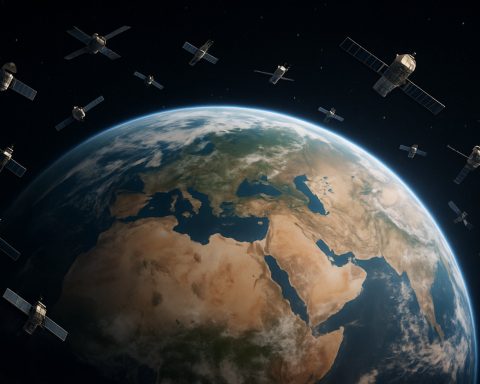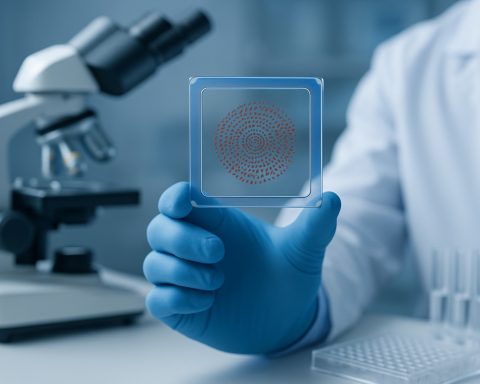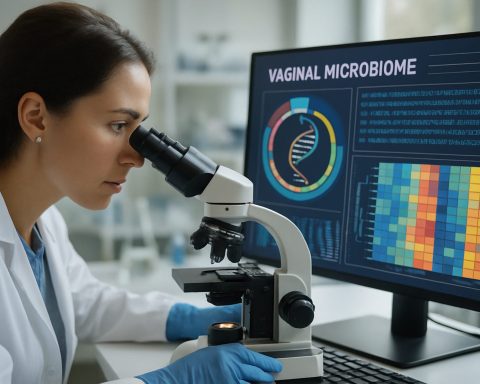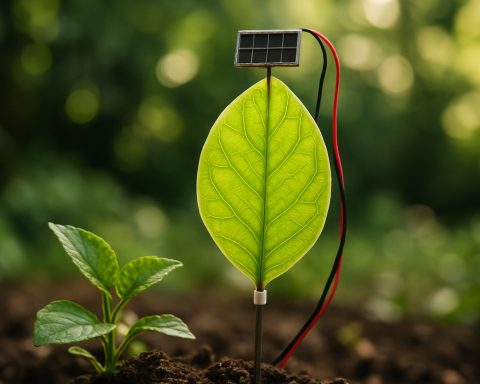- Porsche launches an innovative EV battery recycling initiative, transforming spent batteries into valuable raw materials.
- The process extracts key elements like nickel, cobalt, manganese, and lithium from “black mass” derived from shredded batteries.
- High-purity materials are reclaimed to meet Porsche’s stringent performance standards for new EV battery cells.
- The initiative is progressing into a phase where reclaimed materials will be tested in future EV models, showcasing a commitment to the circular economy and sustainability.
- The strategy aligns with forthcoming EU regulations on recycled content in batteries, positioning Porsche as a leader in eco-conscious automotive practices.
- This initiative represents Porsche’s commitment to resource conservation and a sustainable future, intertwining luxury with environmental stewardship.
In a move that aligns sleek automotive design with cutting-edge sustainability, Porsche is revving up a groundbreaking EV battery recycling initiative. The revered automaker has embarked on a multi-phase journey to transform spent high-voltage batteries into a treasure trove of raw materials, a move that not only ensures the longevity of resources but also echoes the luxury carmaker’s commitment to environmental stewardship.
The heart of Porsche’s audacious plan is to tackle the burgeoning demand for critical raw materials such as nickel, cobalt, manganese, and lithium. These invaluable elements are cleverly extracted through a mechanical shredding process, reducing defunct batteries to a granular form known as “black mass.” From this substance, Porsche has already harvested a staggering 65 tonnes of potential, a testament to the project’s promise and the automaker’s dedication.
Transformation from Waste to Wealth
The intricacies of the recycling process reveal a dance of technology and nature. Separated into streams of aluminum, copper, and the coveted “black mass,” the recycled materials undergo further refinement akin to alchemy. The goal is singular: to isolate high-purity elements critical for crafting new EV battery cells. The purity and consistency of these materials are non-negotiable, meeting Porsche’s rigorous performance standards—standards that are synonymous with its name.
As the initiative advances into its third phase, the ambition broadens. Porsche plans to integrate these reclaimed materials into new battery cells, orchestrating real-world trials within future EV models. This endeavor doesn’t just demonstrate Porsche’s prowess; it underscores a visionary sustainability strategy anchored in the principles of a circular economy. Sustainability, long-term resilience, and innovation are envisioned not as disparate goals but as a singular path forward.
Navigating the Road Ahead
This drive is not merely reactive but strategically preemptive. With forthcoming EU battery regulations on the horizon, mandating higher recycled content and stringent traceability by 2031, Porsche’s initiative is a proactive pledge to align with future standards. Such foresight fortifies its leadership in the eco-conscious automotive sphere, showcasing a commitment to responsible resource utilization and a nuanced understanding of global material markets.
As the wheels of this pilot project turn, a profound narrative unfolds—a vision of transforming environmental challenge into an opportunity for reinvention and leadership. The reminder is clear: under Porsche’s banner, even once-spent resources can catalyze a journey not just of speed and luxury, but of extraordinary stewardship and forward-thinking sustainability.
This initiative isn’t just about reviving resources; it’s about redefining them. In the race towards a cleaner planet, Porsche has not only ensured its stake—but also created a roadmap for the future, where style and sustainability are inexorably intertwined.
Porsche’s EV Battery Recycling Revolution: Pioneering a Sustainable Future
An In-Depth Look at Porsche’s Circular Economy Initiative
Porsche has embarked on an ambitious journey that pairs automotive innovation with environmental responsibility: its groundbreaking initiative to recycle EV (Electric Vehicle) batteries. As the demand for EV batteries rises with the global shift towards electric mobility, efficient recycling becomes crucial. Let’s delve into the facts and explore additional insights on Porsche’s plan.
How Porsche Transforms Spent Batteries into Raw Materials
Process Overview:
1. Battery Collection and Shredding:
– Disused high-voltage batteries are collected and shredded into a granular form called “black mass.” This initial stage is mechanical and key to reducing the batteries for further processing.
2. Material Separation:
– The shredded material is separated into critical components like aluminum, copper, and the “black mass,” which contains valuable elements such as lithium, nickel, cobalt, and manganese.
3. Material Refinement:
– The black mass undergoes additional refinement to isolate these high-purity elements, crucial for manufacturing new battery cells. Porsche ensures these materials meet their rigorous performance standards, synonymous with luxury and high efficiency.
Key Industry Trends and Insights
– Rising Demand for Battery Materials:
– The electric vehicle market is projected to reach new heights, with a CAGR (Compound Annual Growth Rate) of over 20% through 2030. As demand escalates, the need for sustainable material sourcing becomes paramount.
– Regulatory Changes:
– The EU is moving towards stringent battery regulations by 2031, requiring increased recycled content within EV batteries. Porsche is strategically positioning itself to meet these demands ahead of time, reflecting foresight and leadership.
Real-World Use Cases and Future Applications
– Integration into Future Models:
– Porsche plans to incorporate these recycled materials into new battery cells, conducting real-world trials in forthcoming EV models. This approach not only reduces reliance on freshly mined materials but also enhances resource efficiency.
Challenges and Controversies
– Recycling Efficiency:
– Although promising, the EV battery recycling process faces real challenges, such as achieving 100% recovery rates of all materials and minimizing energy consumption during the recycling process.
– Environmental Impact:
– While recycling mitigates mining pressures, the energy-intensive nature of the refinement processes can be environmentally taxing.
Market Forecasts and Industry Trends
– The electric vehicle sector’s expansion underscores the urgency to innovate in battery recycling. By 2030, analysts expect over 30 million EVs on the road, translating to substantial recycling needs.
Actionable Recommendations
– Consumer Mindset Shift:
– As consumers become more eco-conscious, choosing vehicles from automakers like Porsche, which demonstrate a commitment to sustainability, can drive positive environmental change.
– Support Recycling Initiatives:
– Supporting and investing in companies focusing on sustainable technologies and practices helps propel industry standards forward.
For more information about Porsche and its sustainability initiatives, visit the official Porsche website.
Porsche’s EV battery recycling initiative not only reflects its commitment to luxury and innovation but also its dedication to sustainability and environmental stewardship. As more automakers join in on sustainable practices, the automotive industry could see a substantial shift toward a more circular economy, setting a cleaner path for future generations.










